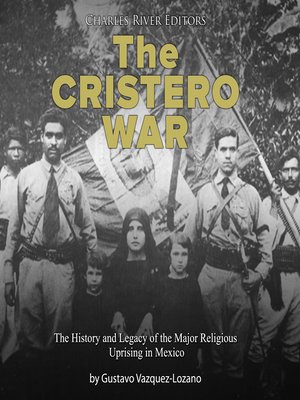The Cristero War
audiobook (Unabridged) ∣ The History and Legacy of the Major Religious Uprising in Mexico
By Charles River Editors

Sign up to save your library
With an OverDrive account, you can save your favorite libraries for at-a-glance information about availability. Find out more about OverDrive accounts.
Find this title in Libby, the library reading app by OverDrive.



Search for a digital library with this title
Title found at these libraries:
| Loading... |
The Cristero War in Mexico is the last great armed movement in a country that for a hundred years suffered revolution after revolution, in an apparently endless cycle. Ignored for decades, the war was long seen simply as an unwanted corollary of the Mexican Revolution, a kind of anomaly in the official narrative.
The Mexican Revolution of 1910 produced an admirable social and agrarian reform, but created an authoritarian state. With no counterweights, the victorious revolutionary class fell into excesses and tried to put religious institutions under totalitarian control, and probably to actually suppress religion. In order to do that, the controversial president Plutarco Elías Calles confiscated church property, had monasteries, temples and confessional schools shut down, deported archbishops, had priests killed, nuns arrested, and declared that the next stage of the Revolution would be the revolution of the minds.
This persecution produced one of the most little-known episodes in the history of Mexico, one that, for many years, the state tried to slide under the rug: the Cristero War, also known as the Cristiada, which for several years ravaged the central plateau of the country.
The Cristiada began in 1927, and officially it ended two years later, though it boiled beneath the surface for ten more years. It was a rebellion of the poorest who were willing to take up arms to defend their spiritual freedom and fight a government that had declared, in practical terms, religion illegal. Unlike the revolutionary armies of a decade earlier, these armies of the poor were never funded by world powers.






